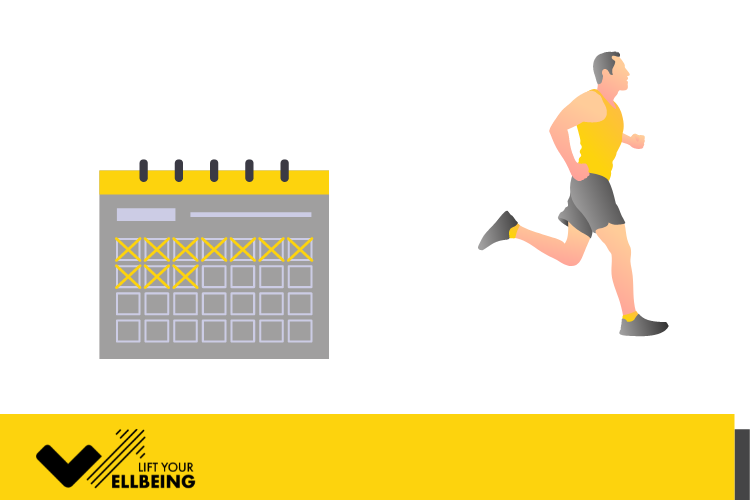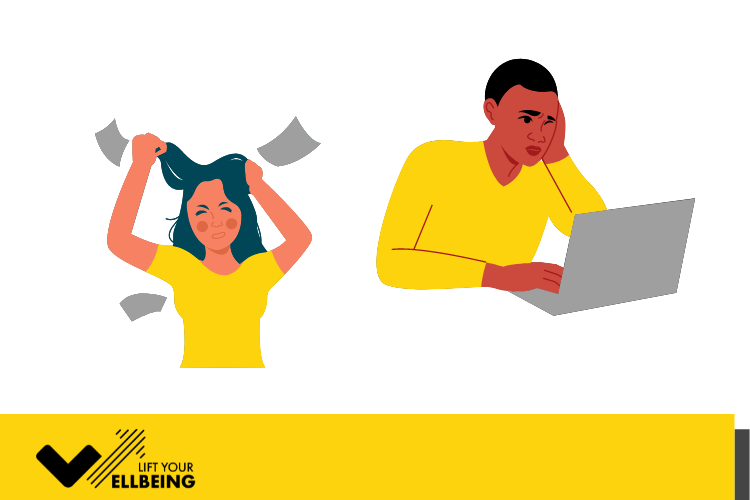
Evening habits to transform your sleep
Our evening habits are make or break when it comes to getting a good night of sleep that will support our mental and physical health.But with the busy and stressful nature of our modern lifestyle we might not even realise that many of our evening habits are causing havoc and confusion in our brain.
What are the evening habits that will transform our sleep?

5 Questions To Assess Your Sleep
How do you know if you are not getting enough sleep to support your health, goals and overall lifestyle? Here’s 5 questions to reflect on which will give you a good insight into whether you need to focus on improving your sleep?

Why do we sleep?

The chicken and egg of exercise and sleep
In many ways we are designed to be lazy. Our brain has evolved over a long period of time to encourage us to make decisions that save energy because food was never in abundance like it is today.
Exercise (along with learning something new) is one of the most energy draining activities we can do.
So when we are tired, potentially because we haven’t been sleeping well, it is an evolutionary natural instinct for our brains to say ‘exercise? are you kidding me, we are running low on resources as it is’.
We risk getting stuck in this nasty cycle of minimal movement and poor quality of sleep day after day which is terrible for our mental and physical health.

3 Steps To Make Healthy Habits Stick Using Neuroscience
If creating sustainable healthy habits was easy, we would all live a balanced life with a thriving sense of wellbeing. Sadly that's not the case.
The brain loves to create efficiencies which save energy. That's how habits are formed and why they are repeated on autopilot, a lot of time without us even knowing.
The brain doesn't really know the difference between a 'good' habit and a 'bad' habit.
This is a 3 step framework, grounded in neuroscience which will support your achieve your goals and experience growth in your health and wellbeing.

A new way to think about mental health
Our brain is receiving messages every second of everyday, the combination of these messages plays a huge role in determining our brain health and where we sit on the mental health continuum in that moment. This is a framework grounded in Neuroscience research, It is similar to the Biopsychosocial model but for me that's much harder for the everyday person to wrap their head around.

Should you exercise on holidays?
Many of us live our normal day to day lives feeling out of balance, lacking the time to exercise, feeling highly stressed and struggling to get a full night of sleep. A holiday is a beautiful opportunity to rediscover that balance ( and still have a great relaxing time).
Once I learned what exercise does for your brain health, you no longer think too much about the calories or aesthetics benefits.

5 Questions you could ask yourself each morning
High performers across many fields have been studied closely and the one thing they all seem to have in common is that they have a morning routine. These rituals are usually based around getting the individual in a positive and energetic frame of mind to allow them to get the best out of themselves each day, whilst feeling great doing it. Increasing their mental health, wellbeing and resilience

5 ways to exercise more often
Regular exercise is essential for support our mental and physical health. Whilst most of us know this, with our busy modern lifestyle it can be very difficult to sustain healthy exercise habits each week. So what can you do you increase the chances that you will exercise more often? Neuroscience tells us that when you regularly exercise you increase your confidence, resilience to stress and have a more positive view of your life. So it’s worth it!

7 Ways To Feel More Rested
How to actually feel rested. For most of us, at the end of the day we aren’t actually physically tired but rather, we are mentally tired. Learn the science and daily strategies of how to improve your approach to rest to enhance your energy, focus and physical wellbeing.

How Exercise And Meditation Supports Your Mental Health
We know that exercise and meditation is good for us. But with our busy lives it can slip away from us. Learn why both of these factors are essential for strong mental health and how you can easily incorporate them into your daily life to 'Lift Your Wellbeing'.

How To Build A Happier Workforce
All leaders need a team of employee who are engaged and doing great work. Without them businesses will struggle. But what can we do as leaders to create a happier and healthier workforce? It's easier and cheaper than you may think.

Communication strategy for a workplace wellbeing program
We know by now that it is almost essential to have a workplace wellbeing program in place. What is much harder is offering engaging initiatives that employees value. A big part of getting this right comes down to your communication strategy. Let us show you what we have learned about communicating employee wellbeing.

Why Employee Wellbeing Matters For Leaders
There’s talk of mental health and wellbeing everywhere you look. But with good reason. Employee mental health was an important focus for businesses before the pandemic, but with more people than ever before experiencing some form of mental illness, it’s no longer an area that any organisation can afford to ignore.

10 Signs Your Team Members Are Excessively Stressed
Learning how to spot signs of stress in your team members is a valuable leadership skill to have. High stress levels and low mental health seem to be the norm for many employees across the world. As leaders we must do more to understand the causes and how we can support people to build resilience and develop a healthy relationship to stress.

Return On Investment (ROI) For Employee Mental Health And Wellbeing Initiatives
What is my return on investment (ROI) for employee wellbeing initiatives? Wellbeing is a hard thing to measure however the high levels of costs related to poor mental health in recent years shows us that we need to continue to invest in our people.
Let's explore the latest findings to support why investment in employee mental health and wellbeing is now essential and returns a strong ROI.
